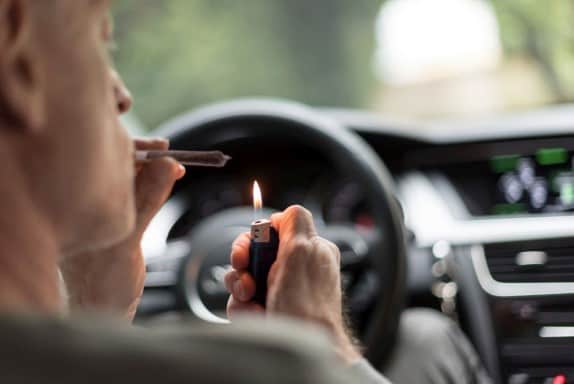Defending Against Police Informant Testimony
April 18, 2025

Coloradans Can Lose Their Job for Committing Theft
“Extreme Domestic Violence” Leads to 1st-Degree Murder Charge
By watching Colorado, many states have seen the benefits of legalizing marijuana for medicinal and recreational use.
California is one of those states. Soon it will be voting on Proposition 64, which would legalize marijuana for recreational uses. But even though the state has legalized medicinal marijuana, it still has some hesitations about recreational use. One of the main concerns facing the California legislature and law enforcement officials is the issue of driving while high.
The solution isn’t something that’s going to appear immediately. Over the next five years, California plans to budget $15 million generated from the retail tax on marijuana to train law enforcement on detecting drug-impaired driving and establish standards for arrests and penalties.
Some law enforcement officials in California argue that recreational marijuana should be legalized only after these standards are set. And while states have been able to look to Colorado for possible solutions to recreational marijuana-related concerns, the issue of driving under the influence is still something Colorado is working on itself when it comes to marijuana.
It has only been a short three years since our state legalized marijuana, so statistics about DUI/DWAI/DUID and causation are not entirely clear. What is clear, however, is that there is a lot of debate over how to handle cases of using marijuana before driving.
In Colorado, laws about drinking and driving are straightforward. When it comes to driving under the influence of alcohol, there are set legal limits that say when you are too drunk to drive. A BAC of .08 or above nets you a DUI, and you can be charged with Driving While Ability Impaired (DWAI) if your BAC is between .05 and .08. These standards were created after years of research about how alcohol impairs drivers.
But the relationship between the amount of THC in your system and your ability to drive isn’t quite as clear – especially when the difference between medicinal and recreational marijuana come into play. Should someone, for example, be punished when marijuana is prescribed to treat pain – something that actually makes them a better driver?
That was almost the case with Melanie Brinegar. In 2015, Brinegar was pulled over for an expired license plate, and law enforcement found 19 nanograms of THC in her system. This is way above the current legal limit, and she was arrested for DUI. However, Brinegar argued that the marijuana made her a better driver by reducing her pain levels. Brinegar was acquitted, but not all cases end so favorably.
Even though there are obvious differences between the uses of alcohol and marijuana and their effects on drivers, all controlled substances are charged and treated like a DUI/DWAI. This is true even if you technically receive a DUID, because there aren’t clear differences between a DUID charge and a DUI charge.
Currently, there is no set amount of THC that will get you charged with a DWAI, but it only takes a blood THC content of 5 ng/ml to be charged with DUI. You will face all of the same penalties as someone who was found driving while drunk… and some of these penalties are not exactly appropriate for rehabilitation.

These penalties make a lot of sense for someone who was caught drinking and driving, but not so much for a driving offense involving marijuana.
Case-in-point are ignition interlock devices. IID may be required to be installed in your car after a DUI (and are required after a second or subsequent DUI convictions).
IIDs measure your BAC before you are able to drive your car. But is this an appropriate penalty for driving under the influence of marijuana? After all, a driver could have smoked a lot of marijuana – to the point where their driving is impaired – and they would still be able to get behind the wheel of a car and drive with an IID because it doesn’t have the ability to measure THC levels.
Research will eventually be able to help law enforcement find proper penalties for driving while high – and may lead to new technologies that can help – but it’s going to take a while until we get to that point. Until then, what is the point of saddling someone with penalties and restrictions that don’t reflect the crime and are likely to do little to prevent it from happening again?
If you have been arrested for driving after consuming marijuana, you face serious consequences – some of which probably don’t make much sense. Reach out to a skilled Denver DUI attorney today to start building a defense that protects your rights and calls into question the very nature of the penalties you face.
About the Author:
Denver-based criminal defense and DUI attorney Jacob E. Martinez is a knowledgeable and experienced litigator with a record of success providing innovative solutions to clients facing criminal charges of any severity. Mr. Martinez has been designated a Top 100 Trial Lawyer by the National Trial Lawyers and has been awarded both the Avvo Client’s Choice Award and Avvo Top Attorney designation, evidencing his reputation for his exemplary criminal and DUI defense work and high moral standards.